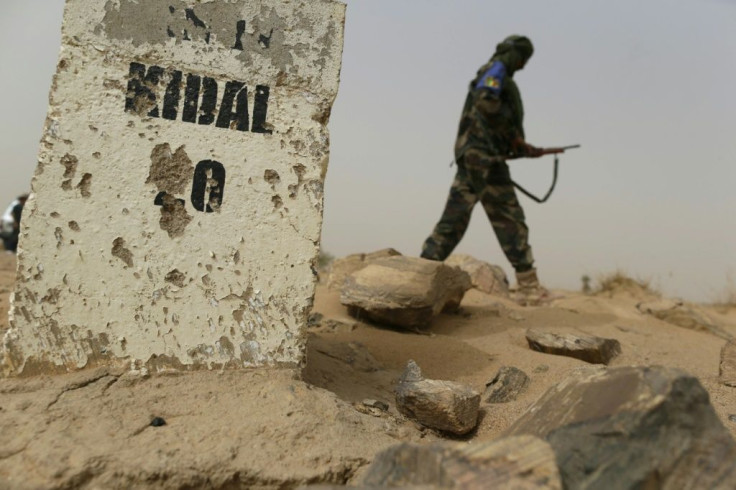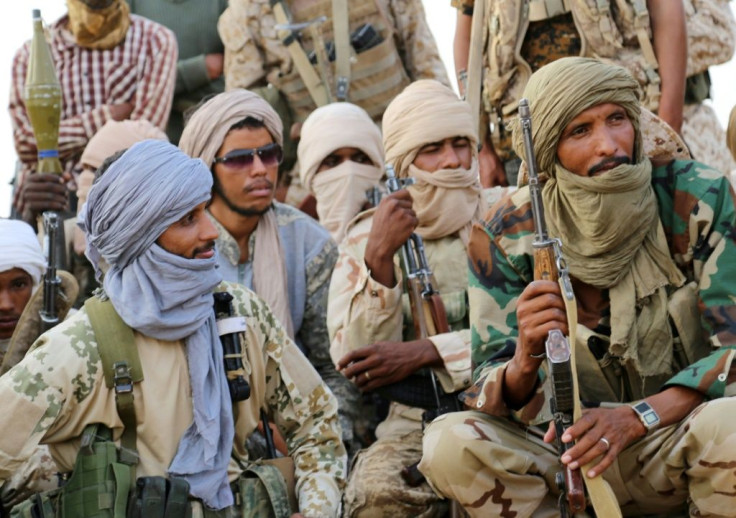Mali Army Returns To Former Rebel Bastion Kidal In Symbolic Move

The Malian army has returned to the northern town of Kidal, the military said on Thursday, six years after they were driven out of the former rebel-held bastion that became a symbol of failing government control over parts of the country.
The arrival of Malian troops in Kidal is considered a key step to Bamako's government reasserting authority over its vast and often lawless territory as it battles a growing jihadist insurgency.
A detachment "has returned to the base in Kidal... Everything has really gone well," one army commander AFP, speaking on condition of anonymity.
The commander said "around 300" Malian troops had entered the town, with an escort of UN peacekeepers.
His account was confirmed by a commander there with MINUSMA, the UN operation in Mali.
Separatist Tuareg rebels captured much of northern Mali, including Kidal, in 2012.
But their rebellion was then commandeered by jihadists, who have extended their Islamist insurgency to the centre of the country, and also across Mali's borders to Burkina Faso and Niger.
Thousands of soldiers and civilians have died in the conflict, which Mali has struggled to contain even with the help of thousands of foreign troops.
Large swathes of the country lie outside of state control.
In 2015, the rebels signed a peace agreement with the government, although the accord was fragile and the issue of Kidal was especially delicate.
Deployment of the troops ends a years-long absence, boosting the government at a time when it has opened the door to talks with jihadists.
MINUSMA head Mahamat Saleh Annadif said in a statement on Thursday that the return of soldiers to the former rebel town was a "major achievement".
He added that "there is still a long way to go," but that "the process towards peace will achieve other successes".
The deployment was announced on Monday by President Ibrahim Boubacar Keita. He had told French media the army was en route towards the town and was expected to reach it on Friday.

Malian soldiers had not set foot in Kidal since 2014 after they had suffered a bitter defeat at the hands of rebels.
The city has since been under the control of the Coordination of Movements of Azawad (CMA), a mostly Tuareg alliance of armed rebel groups.
The CMA and several other rebel groups signed a peace accord with the government in Bamako in 2015.
Among other things, the pact provided for former rebels to join the army, which would eventually return north.
Working out the specifics of returning to Kidal has taken years, however. The various groups involved reached an agreement on how it would work several weeks ago.
Of the 428 troops meant to return to the town under that deal, a third were to be Malian regular soldiers, a third CMA fighters, and another third former rebels from other groups.
Yvan Guichaoua, a researcher at the University of Kent, said pulling off the return was a significant step forward.
"Many symbolic obstacles need to be removed to create the minimum cohesion required to form a viable anti-terrorist front," he said. "The return of forces to Kidal provided for in the peace agreement was one of those obstacles."
The peace deal has caused tension in some quarters.
Mali's neighbouring governments are often wary of former rebel groups, for example, suspecting them of cooperating with jihadists. They view Kidal as a rear base for Islamist militants.
However, implementing the 2015 peace deal is viewed by many as one of the few escape routes from deepening violence in Mali.
Deploying another tactic, President Keita also said on Monday that the government was contacting jihadist leaders to engage them in talks.
Malian army units returning to Kidal are so-called "reconstituted" ones, comprised of regulars and former rebels who joined the military after the 2015 peace accord.
Other such units are expected to deploy in northern Malian cities such as Menaka, Gao and Timbuktu.
© Copyright AFP 2024. All rights reserved.





















